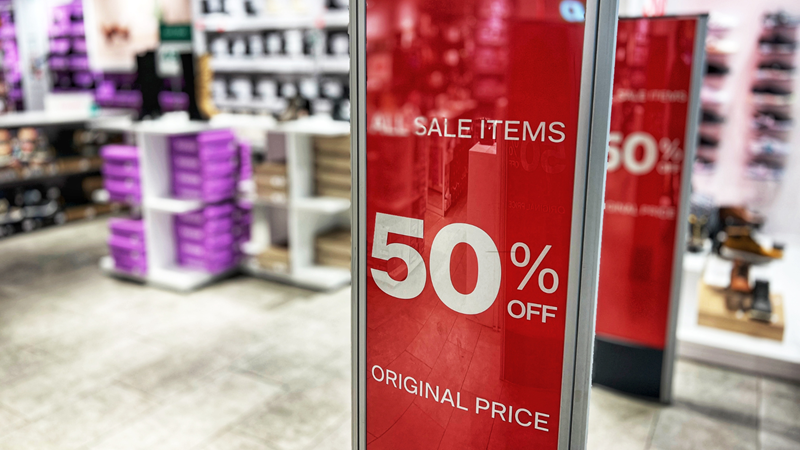Future of Marketing to SMBs
Reimagining marketing to small businesses during the pandemic
Small business owners (SBOs) are often misunderstood, underappreciated, and, above all, underserved. They are different from big business leaders and deserve a very different marketing approach. This is even more important now as they are climbing out of the depths of the pandemic.
In Q4 of 2020, we talked to 500+ SBOs and assessed their survival and revival mindsets. We looked at the natural development of the small business market recovery, and we explored all the macro influences on what’s next to identify just how far marketing strategies need to evolve.
Survival and revival mindsets
Undoubtedly, the pain has been real. But the good news is that SBOs’ levels of optimism are far higher than many believe: 58% are optimistic about the future of their business. Furthermore, 66% of all SBOs feel their business model will change or evolve because of the pandemic, through digitization of their sales channels, business operations and innovation. Their mindsets are fueled by the need for innovation, and they are about to kick-start the great re-invention era.
The resilience, positivity and optimism are in the DNA of SBOs. It’s why they are entrepreneurs. So, when marketing to them, feed this optimism. Energize the positivity. You must shift from messages of empathy to clear messages of empowerment. Instead of a hug, it’s arm in arm, together towards this bright future. They feel that they are the architects of the new normal, so help them get there.
Small business market recovery
As optimistic as many of these SBOs are however, not all of their businesses will recuperate at the same pace. Recovery will be staggered and will depend on geographical location, government mandates, business lifecycle and the industry the business operates in.
Provincial governments hold the ultimate power when it comes to shutdowns and re-openings. And to make matters even more complex, the opportunities will also be dependent on regions, as businesses in large metro areas like Toronto or Montreal, will see opportunities later than their counterparts in smaller towns.
Provincial governments hold the ultimate power when it comes to shutdowns and re-openings. And to make matters even more complex, the opportunities will also be dependent on regions, as businesses in large metro areas like Toronto or Montreal, will see opportunities later than their counterparts in smaller towns.
Young businesses (less than five years old) and smaller businesses (less than 20 employees) will face greater challenges during recovery. These businesses typically lack great degrees of liquidity and have greater credit constraints, so they are more sensitive to weak consumer demand.
The industry type is perhaps the most critical element that will define the business recovery.
Naturally, the hardest hit industries are the ones that rely on large gatherings, close human interaction, high levels of hygiene and travel. The speed of recovery for these industries rests on the re-design of operations to minimize the “high-touch” environment and to make their customers feel safe through digitization of purchase journeys, curbside pickup, deliveries, touchless payments and virtual interactions.
Considering all these factors, there will be three speeds of recovery:
- SLOW: urban/high touch/smaller and younger businesses
- MEDIUM: suburban/medium touch/established mid-size businesses
- FAST: rural/low touch/mature businesses
And this means that your marketing efforts need to match -- don’t go after them in the same way, or at the same time. Create a targeted approach, according to the speed of recovery. There are immediate opportunities in the market. And for those that need to re-think their business model, help them get there.
What’s next?
Undoubtedly, COVID-19 has caused a major consumer behaviour shift driven by the need for physical distance, health and safety. And this has manifested itself in two major ways: e-commerce and digitization of business operations and virtual experiences.
Consumers have already dictated how they are comfortable buying, how willing they are to buy, and most importantly, how they are willing to engage. Online shopping, once a convenience, is now essential for those that sell products. But even for professional services, such as consulting, accounting and even medical, consumers are realizing that virtual experiences are preferred in many cases. Helping SBOs with this transition will pay off handsomely with both acquisition plays and retention.
“We are in this together” was a resounding theme throughout the early days of the pandemic: communities pulling together to help its members and communities getting behind the re-opening of their favorite small businesses. When that spirit and vibrancy waned, many of us realized just how important small businesses are. So, there seems to be this shift towards doing good for communities. In fact, purpose has become even more prominent. And that’s a good thing.
More than three quarters (77%) of SBOs surveyed said they currently allow employees to work from home (WFH), and 48% of those will make it permanent. Talent acquisition and retention will be driven by WFH policies, so SBOs will need to fully embrace this. They will need to invest into technology to make this viable: tools for productivity and collaboration, and security protocols to protect the data. In many cases, they will need to be re-skilled in many areas.
Mindsets, staggered recovery and the impacts on what’s next caused by major shifts in consumer behaviour and WFH revolution will all have monumental effects on how SBOs conduct business. This new landscape will require a new, innovative and re-imagined marketing approach for brands trying to find, engage and motivate SBOs. Transformative times call for transformative strategies, including:
- Messaging: positive, partnering, pioneering
- Targeting: micro vs. macro
- Brand: purpose driven experiences
- Content: support digitization, WFH revolution and stay agile
- Retention: focused, collaborative and helpful
SBOs have always expected a different marketing approach. “Talk to me, don’t sell to me” is what we often hear. And now, they need this even more. Support. Help. And guide through the transition. And you’ll have a fan, not just a customer.




































